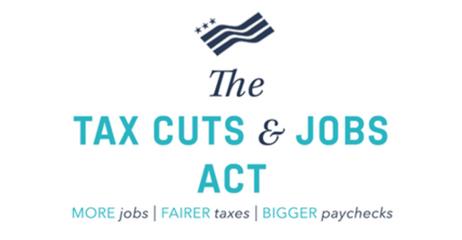The Tax Cuts and Jobs Act of 2017 made many changes which impact charities and not-for-profit organizations such as private schools. Large private schools have expert tax advice at their disposal, as well they should. However, small private schools may not have a fulltime accountant on their staff. The point of this article is to encourage the administrators and trustees of small schools to discuss The Tax Cuts and Jobs Act of 2017 with tax and legal professionals at their earliest opportunity. These small schools need to understand what impact the new tax code has on their operations.
Here then are five items which I offer as talking points for your discussions.
1. The Impact On Charitable Giving
The Tax Cuts and Jobs Act – What Nonprofits Need to Know by Sandra Cyr in Philanthropy Journal News offers some insight into how the Tax Act might impact charitable giving. I use the verb "might" advisedly, because it is too soon as of this writing in July 2018 to know what the real impact on charitable giving will be. We will have a better idea about that in the spring of 2019. In the meantime, I suggest that you discuss giving with your board and try to develop a realistic plan. Don't assume that giving will stay the way it has been. Assume that it will change and be prepared for that change.
2. Doubling Of The Standard Deduction
The major change which impacts not-for-profits is the doubling of the standard deduction. In effect, that means that fewer people will be taking deductions, as they will, in many cases, be better off taking the standard deduction as opposed to itemizing. This could impact donations to your school. Ask your financial experts for strategies for charitable giving. Once you understand the options available to you, you can share them with your community. What The New Tax Law Means For Your Charitable Giving by Bradley Reiners in Forbes offers an overview of the subject.
3. Changes In The Estate Tax
An article in The Conversation discusses changes in the Estate Tax. Once again, it is too soon to know precisely what the impact of the changes will be, but it is not too soon to discuss these changes with your board and your accountant. Leaving a major bequest in one's Will might have been a good strategy in prior years, but after January 1, 2018, is that strategy a valid one? Maybe it is. Maybe it isn't. At a minimum, you should develop a list of your successful graduates and be prepared to raise the subject of the Estate Tax changes with them.
4. Unrelated Business Income Tax
Unrelated Business Income Tax is complex and needs a professional accountant to review your school's exposure to the changes in UBIT.
Does My Nonprofit Need to Pay Tax? Understanding Unrelated Business Income Tax in Nonprofit Quarterly states:
"To ensure that tax-exempt organizations aren’t given an unfair advantage over their corporate/trust counterparts, Congress added the UBIT rules to force exempts to pay their fair share when engaged in commercial activity outside the scope of their exempt purposes." This same journal also offers links to other resources to help you understand the impact of the Tax Act 2017 on not-for-profits. Unrelated Business Income Taxation explains what is involved.
5. New Excise Tax On High Nonprofit Compensation
In Tax Reform Hits Compensation of Nonprofit Executives in 2018, Linda M. Lampkin, Senior Nonprofit Compensation Specialist, Economic Research Institute writes: "Effective January 1, 2018, the Tax Cuts and Jobs Act, otherwise known as the Tax Reform bill, imposes a new 21% excise tax on nonprofits that pay compensation of $1 million or more to any of their five highest-paid employees. There will also be a tax on certain employee benefits."
The idea behind this excise tax is to level the playing field between not-for-profit and for-profit businesses. Consult with your tax professional to confirm that your school is not liable for this new excise tax.
Conclusion
As I researched this article, I was struck by frequent disclaimers about the impact of The Tax Cuts and Jobs Act of 2017 on not-for-profits. Phrases such as "Impact - Still To Be Determined" and "Impact Unclear" indicated that most institutions will have to wait until they prepare their 2018 Form 990s to understand the full impact of these tax changes on their specific situation. In the meantime, discuss the Tax Act and its changes with your tax and legal professionals. Proactively managing these changes will put your school ahead of the game when it comes time for the end of fiscal year reporting.
DISCLAIMER: This information is compiled from many sources and is not intended as tax, investment, financial planning or legal advice and should not be relied upon as such. For tax, investment, financial planning or legal advice you are encouraged to consult with your tax and legal professionals.
Questions? Contact us on Facebook. @privateschoolreview






















